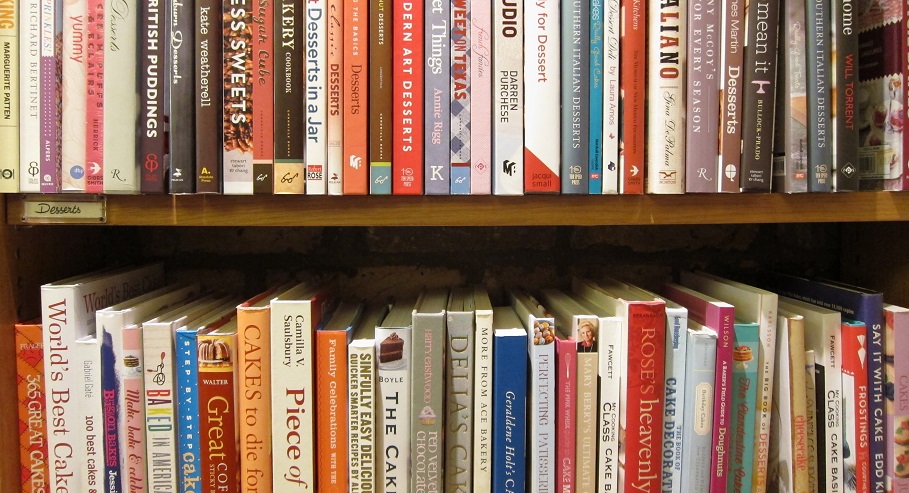One of the things that I was extremely grateful for after my ex-fiancé broke our engagement was my student teaching at the Academy. I was working between 100 to 110 hours every week, so until about late October I had no time to really let what had happened get to me. I put off thinking about it until I had the time and space to break down.
So it wasn’t until about a month and a half after the fact that it really hit me– that he had broken off our relationship, and I wasn’t getting married. At this point, a few things started happening, and one of them was that I couldn’t sleep. I was routinely going two or three days without sleeping, and sometime in November I didn’t sleep at all for a solid week. I felt like I was slowly going crazy, and I knew I had to start getting regular sleep– somehow.
I turned to books. I’ve always turned to reading when something in my life was distressing, and this time was no different. I initially went to all the old stand-bys– Lori Wick, Janette Oke . . . but something that I very quickly realized was that the relationships between men and women in standard “Christian romance” novels reflected the same patterns that had existed in my relationship with John*. Books by these women, in particular, espoused a heavily complementarian view of relationships as a model for all relationships, and for reasons I didn’t really understand at the time, it creeped me out.
This was when I discovered romance novels.
I had been taught, from a very early age, that romance novels were utter rubbish. They were the dregs of literature– the basest thing a young woman could possibly put in her head. There have been many accusations made against the entire genre: they bring feminism to a screeching halt. Some believe that romance novels are inherently addictive, that women read these compulsively. One of the more common arguments I’ve heard is that romance novels are either equivalent to visual pornography, or are emotional porn for women (and, for fundamentalists who aspire to maintain emotional purity, this element is especially dangerous). A more unique argument is that romance novels are an example of women trying to fight against the curse— which is our ‘natural state’ apart from Christ. Occasionally, the women who were teaching me about the evils of the romance novel drew distinctions between Harlequin and Jane Austen, but not often. Some arguments pose that romance novels are defined by their “negative characteristics”; if they include erotica, if they are some form of “escapism”, if they encourage discontentment (especially dissatisfaction with your husband), or if they give the reader–and this is probably the most emphasized evil– an unrealistic expectation of love, romance, and marriage.
But I couldn’t bring myself to care about any of that. I needed to escape my life, at least for a few hours at a time. I couldn’t stand the reality I was living in, and I wanted a story to reassure me that love was still a good thing, that falling in love was an experience worth having. In my reality, what I had mistaken for “love” had betrayed me, violently. My “happy ending” was gone, but I wanted to believe that a happy ending still existed– somewhere, even if it was in a book. I bought Johanna Lindsey’s Once a Princess, and I loved every second of it. It was a thrilling chase story, but the plot was uncomplicated and straightforward. It didn’t involve a whole lot of me trying to anticipate the author– at one point, I described romance novels as “macaroni and cheese for the brain.” Sure, it may not have the challenge of Ulysses, but who wants “steak” all of the time?
Looking back, there’s an interesting conundrum surrounding the romance genre. On one hand, the very existence of the romance novel is a feminist realization. Romance novels declare women to be the author of their fate, that they get to choose love, that they have control over their bodies, and they can, shockingly, experience pleasure. The more erotic scenes feature attentive lovers who place the woman at the very center of their attention.* Romance novels, with nearly one voice, declare that a woman is right when she seeks equality, justice– that she deserves to be valued for herself.
Also, this video on the history of the romance novel as a feminist movement is amazing.
On the other hand, romance novels very frequently enforce some shallow gender stereotypes, so there’s that.
But, for me, romance novels helped me re-order my priorities as a woman. It helped me realize that being a strong, feisty, independent, stubborn-as-hell woman was a good thing that I should never surrender to anyone, for any reason. They helped me laugh again, and for a few hours, they could cheer me up. I could believe that love wasn’t always going to hurt me. It painted a picture of different version of male/female relationships, one where the woman had a voice, and was truly an equal partner.
What do you think of the romance novel genre? Does it undermine feminism? Do you think we should exercise more caution if we’re going to read romance novels? Or, has reading a romance novel been a positive experience for you?
*the link is to Naomi Wolf’s Vagina, which I think every single woman on the planet should read. One of her central arguments is that making the woman the primary focus of sex generally makes sex a better experience for everyone.


